On the afternoon of October 19, at the National Assembly House, National Assembly Chairman Tran Thanh Man chaired a meeting between the Standing Committee of the National Assembly Party Committee and the Head of the Party Group - Head of the Delegation, Deputy Head of the Delegation in charge of the National Assembly delegations of provinces and centrally-run cities before the 10th session of the 15th National Assembly.
At this session, the National Assembly will consider and decide on 66 contents; of which 49 draft laws and 4 legislative resolutions will be passed.
PHOTO: VNA
Speaking at the conference, the Chairman of the National Assembly stated: The 10th session is the last session of the 15th National Assembly with a huge amount of work. This session will promptly institutionalize new policies and conclusions of the Central Committee, the Politburo , the Secretariat, especially the important orientations approved at the 13th Central Conference, which emphasized the requirement of "turning institutional reform into a competitive advantage, into a driving force for development", unlocking resources, creating a legal foundation and driving force for national development in the coming period.
49 bills, 4 resolutions
The 10th session is considered a historic session, with a working period of up to 40 days, with many important contents. The National Assembly has just carried out the contents of the regular session and summarized the term of the 15th term.
At this session, the National Assembly will consider and decide on 66 issues. Of these, 49 draft laws and 4 legislative resolutions will be passed; 13 groups of issues on socio-economics, state budget, supervision and other important issues will be considered and decided.
The passing of 49 draft laws and 4 resolutions is a record number of laws and resolutions considered and passed at a session during the 15th National Assembly term and perhaps in the entire 80-year history of the National Assembly. At the 7th session (end of 2024), the 8th session and the 9th extraordinary session, the National Assembly passed 33 draft laws. At the 9th session last June, the National Assembly passed 34 draft laws. With more than 50 draft laws and resolutions on legislative work to be passed by the National Assembly at this session, in the past year, the National Assembly has passed 120 draft laws (mainly amended laws) out of a total of about 213 draft laws in effect (accounting for 56.3%).
The 9th session of the 15th National Assembly
PHOTO: GIA HAN
However, the "record" of the 10th session is not only in the number of bills and resolutions passed. Of the 49 bills and 4 resolutions on legislative work passed at this session, 19 were submitted and passed in a shortened order and procedure, or about 40%.
The laws expected to be submitted for approval include: Law on Cyber Security (comprehensive amendments to the Law on Cyber Security and the Law on Network Information Security into one law); Law on Protection of State Secrets (amended); Law on Digital Transformation; Law on High Technology (amended); Law on Drug Prevention (amended); Law on Construction (amended); Law on Amending and Supplementing a Number of Articles of the Law on Technology Transfer; Law on Amending and Supplementing a Number of Articles of 10 Laws related to security and order; Law on Amending and Supplementing a Number of Articles of 15 Laws in the fields of agriculture and environment, etc.
National Assembly Chairman Tran Thanh Man speaks at the meeting on the afternoon of October 19.
Photo: VNA
The amendment of a large number of laws in a shortened direction is partly to serve the arrangement and streamlining of the apparatus, implementing the 2-level local government model that began operating from July 1. In addition, a large part of the draft laws and resolutions submitted to the National Assembly at this session aims to implement 7 recent resolutions of the Politburo (resolutions 57, 59, 66, 68, 70, 71, 72), aiming to remove a series of bottlenecks in various fields, creating institutions to create a foundation for the country's breakthrough development in the coming time.
Remove bottlenecks
Resolution 66 of the Politburo on innovation in law-making and enforcement to meet the requirements of national development in the new era, issued at the end of April, sets the target of basically completing the removal of "bottlenecks" caused by legal regulations by 2025. Along with that, thoroughly cutting and simplifying unreasonable investment, business, practice conditions and administrative procedures. Resolution 68 on private economic development also sets the target of cutting at least 30% of business conditions by 2025. These targets were then institutionalized into tasks in resolutions of the National Assembly and the Government.
Most of the laws submitted to the National Assembly for amendment and approval at this session are aimed at the above tasks. For example, the amended Planning Law or the Resolution of the National Assembly stipulates a number of mechanisms and policies to remove difficulties and obstacles in the implementation of the Land Law... The Planning Law was passed by the National Assembly in 2017, but after 8 "difficult" years with many amendments, the organization of implementation still has many obstacles, especially when implementing the merger of provinces and communes, abolishing the district level and building a 2-level local government. Therefore, the amendment of the Planning Law this time aims to resolve difficulties and obstacles in practice, overcome overlaps and inadequacies of legal regulations and overlaps and duplications between plans; and handle obstacles in assessing the conformity of projects with plans. At the same time, it is necessary to simplify planning processes, procedures and contents, shorten the time for planning establishment, appraisal and approval, and promote decentralization and delegation of authority in planning activities.
Regarding the Land Law, the initial plan was to comprehensively amend the Land Law at this session to remove practical obstacles. However, the Government and the National Assembly Standing Committee then decided to submit a resolution to the National Assembly for approval to immediately remove difficulties and obstacles in implementing the provisions of the current Land Law, especially regarding land price calculation.
According to Ms. Pham Thi Hong Yen, member of the Economic and Financial Committee, the reason for not amending the Land Law immediately is because it is necessary to fully and comprehensively assess the current difficulties and obstacles; at the same time, ensure that the law-making solutions are comprehensive, synchronous and interconnected, on the basis of harmonizing the interests of the State, people and businesses. The issuance of the National Assembly's resolution to immediately remove obstacles still achieves the set goals, contributing to the realization of socio-economic development goals, improving the effectiveness and efficiency of land management and use.
Along with removing bottlenecks is the reduction and simplification of investment, business, practice conditions, and administrative procedures. In the draft Investment Law (amended), the Government proposed a series of measures to improve the decentralization mechanism between central agencies and local agencies on the basis of ensuring the effectiveness and efficiency of state management, promptly handling practical issues, and removing institutional "bottlenecks". In addition, the Government also proposed to cut 21 conditional investment and business lines such as: accounting services; tax procedures; rice export; temporary import and re-export of frozen foods; automobile warranty and maintenance services; shipbuilding, conversion and repair services; construction activities of foreign contractors; data center services; and study abroad consulting services.
New series of policies
Many draft laws were also submitted to the National Assembly to institutionalize a series of new policies and new guidelines in recent resolutions of the Politburo. The draft law on amending and supplementing a number of articles of the Law on Education overcomes the shortcomings and bottlenecks of the current Law on Education. Along with that, the draft law stipulates that the State will provide a set of textbooks for unified use nationwide. At the same time, the Government stipulates free textbooks for students; implements appropriate socialized solutions for textbooks, ensuring sustainability and meeting the requirements of improving the quality of education...
In the Law on Higher Education (amended), the Government proposed to amend many regulations to innovate university governance in the direction of streamlining the apparatus, reducing formalities and administrative procedures; changing the mindset from input control to standard management and process monitoring, increasing autonomy and flexibility for higher education institutions in performing training and scientific research tasks to meet the needs of the labor market. At the same time, it is necessary to change the financial mechanism for higher education; determine the leading role of the state budget and the role and responsibility of the State in investing in higher education...
In addition, at this session, the National Assembly will also consider and approve many draft laws related to health, implementing Resolution 72 of the Politburo on a number of breakthrough solutions, strengthening the protection, care and improvement of people's health. Accordingly, in the Resolution of the National Assembly on the mechanism and policy for implementing Resolution 72, the Government proposed that from 2026, free periodic health check-ups be conducted at least once a year according to priority groups and roadmaps. By 2030, implement the policy of exempting hospital fees according to a roadmap suitable to the socio-economic development conditions of the country and the balancing capacity of the Health Insurance Fund and increase the health insurance contribution rate from 2027. From 2027, health insurance participants who are near-poor households, elderly people aged 75 and over who are receiving social pension benefits will be entitled to 100% coverage of medical examination and treatment costs within the scope of health insurance benefits...
The National Assembly will decide on high-level personnel work.
At the 10th session, in addition to legislative work, consideration of economic, social, state budget and many important issues, the National Assembly will decide on personnel work within its authority.
Previously, the Central Committee had given opinions on personnel for the Politburo to introduce at the 10th session so that the National Assembly could elect the Secretary General of the National Assembly, two committee chairmen and approve the deputy prime minister and ministers.
Vice Chairwoman of the National Assembly Delegation Affairs Committee Ta Thi Yen said that based on the decision of the Central Executive Committee and the submission of competent agencies, the National Assembly will elect, approve, or dismiss a number of senior leadership positions in the State apparatus.
Currently, the competent authorities are completing the personnel file procedures in accordance with regulations. It is expected that the personnel work will be carried out on the last day of the first week of the 10th session.
Source: https://thanhnien.vn/khai-mac-ky-hop-quoc-hoi-lich-su-185251019221500025.htm


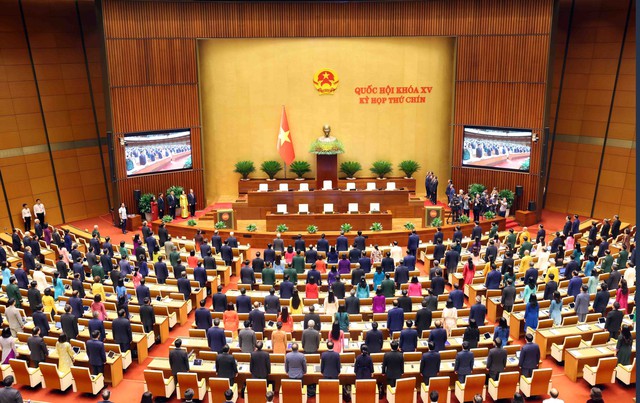
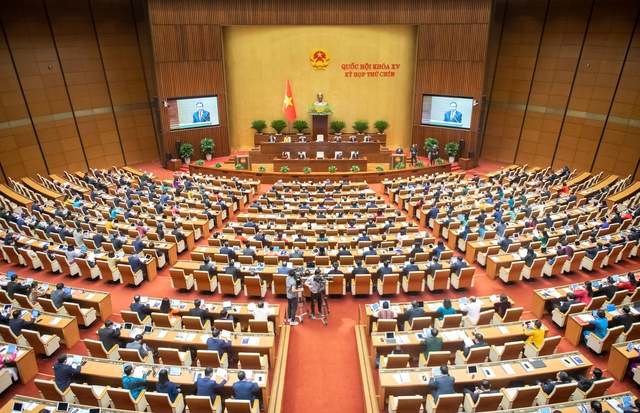
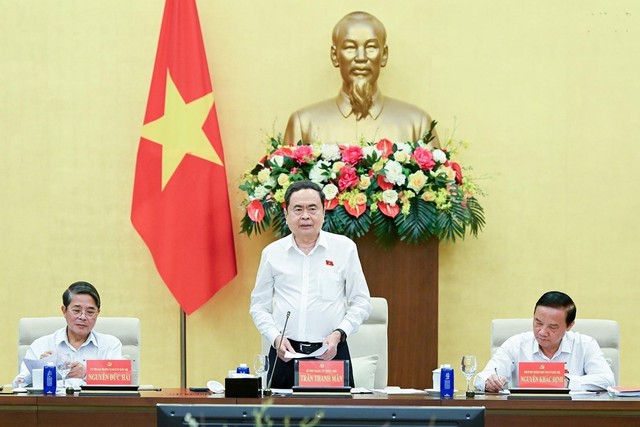
![[Photo] The Steering Committee of the 2025 Fall Fair checks the progress of the organization](https://vphoto.vietnam.vn/thumb/1200x675/vietnam/resource/IMAGE/2025/10/20/1760918203241_nam-5371-jpg.webp)
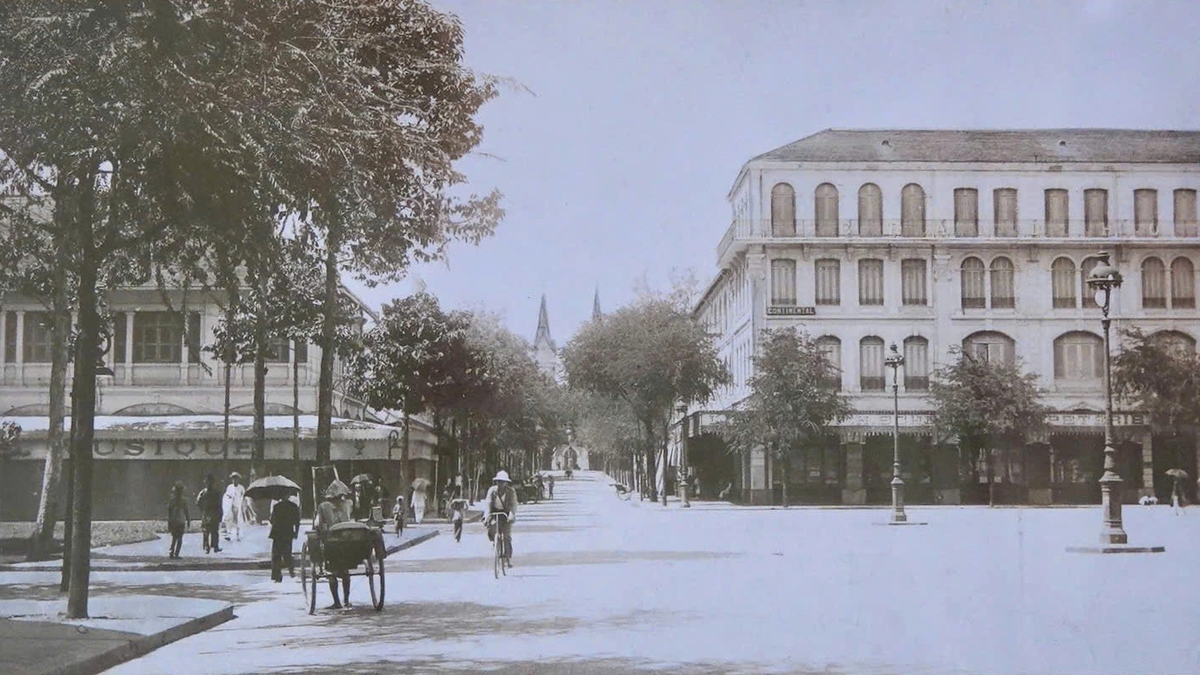
![[Photo] Solemn opening of the 10th Session, 15th National Assembly](https://vphoto.vietnam.vn/thumb/1200x675/vietnam/resource/IMAGE/2025/10/20/1760937111622_ndo_br_1-202-jpg.webp)



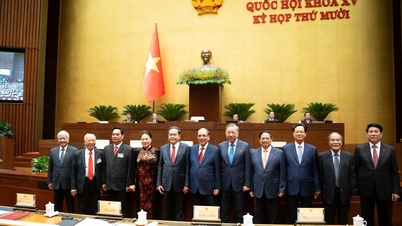

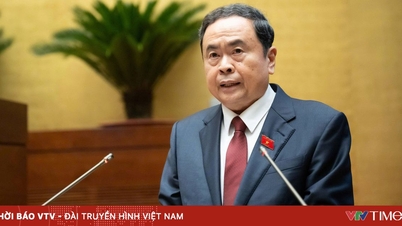

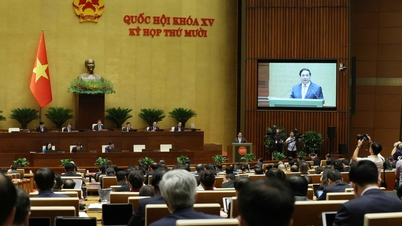

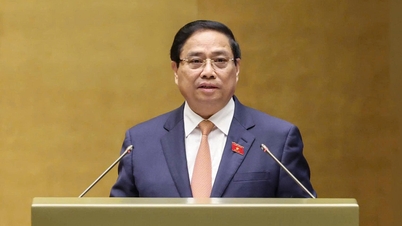
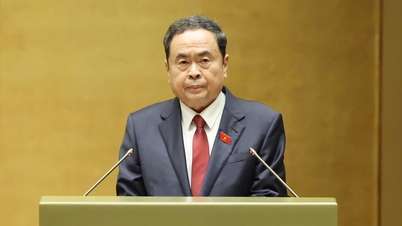
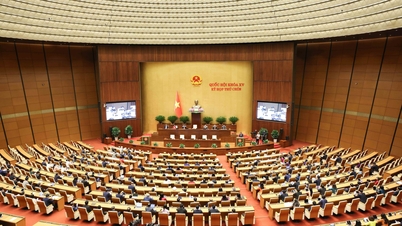



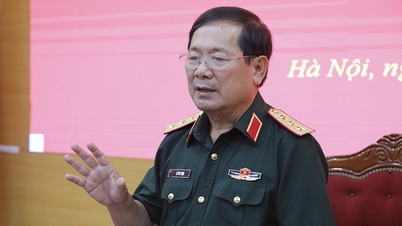
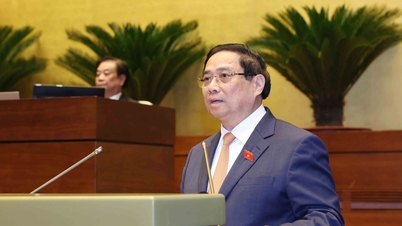


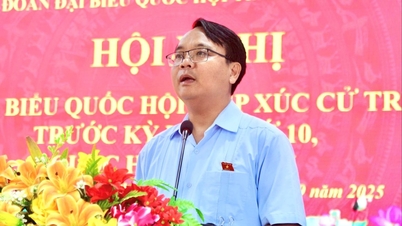
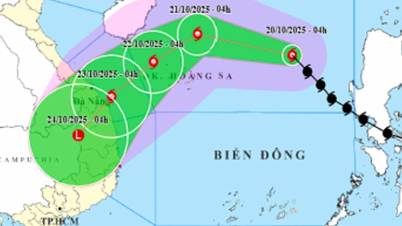




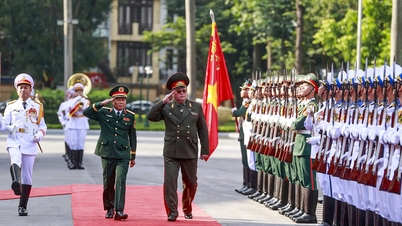






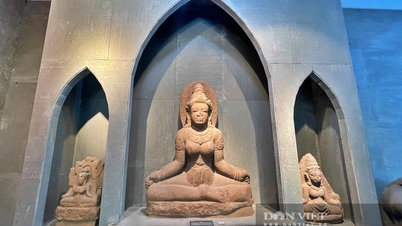

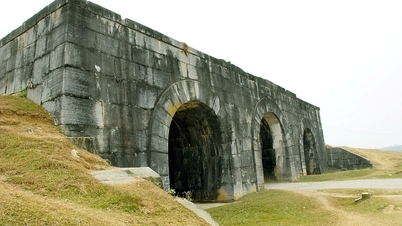

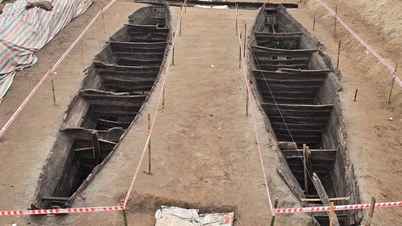


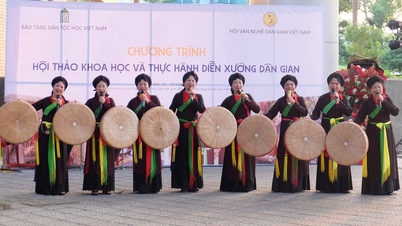




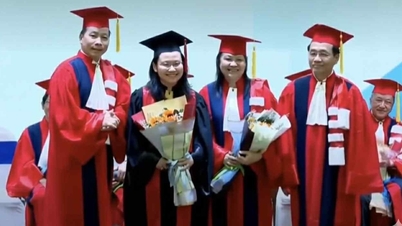




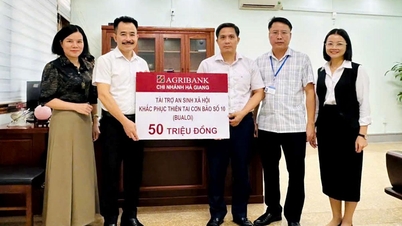



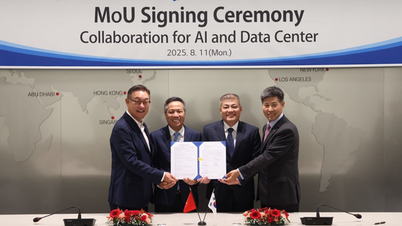













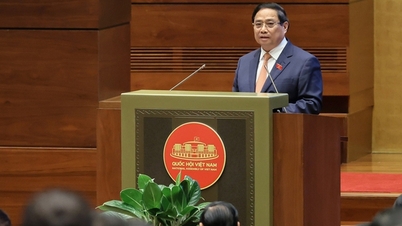



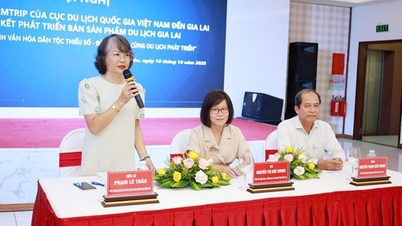
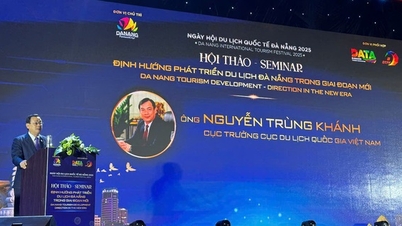
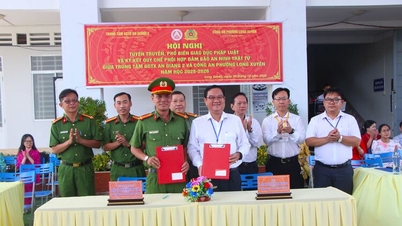

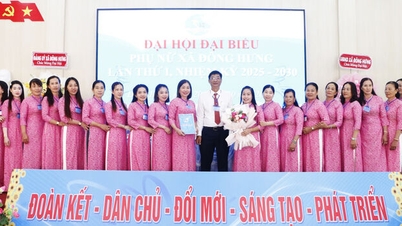
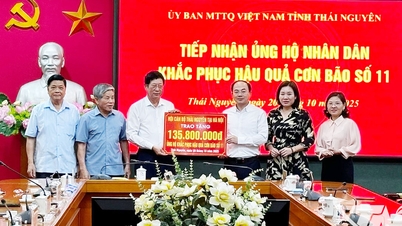

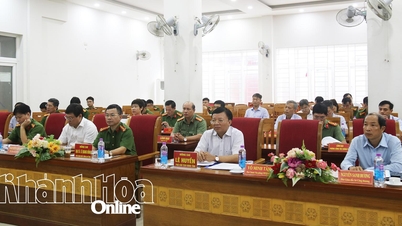

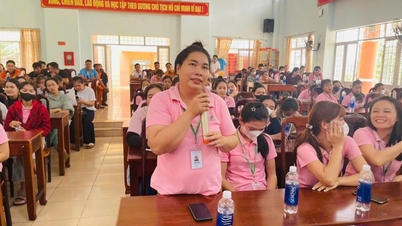

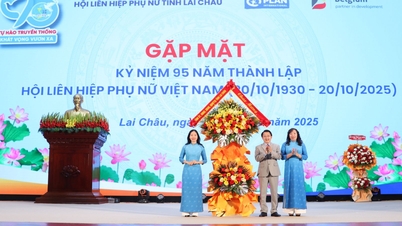
















Comment (0)